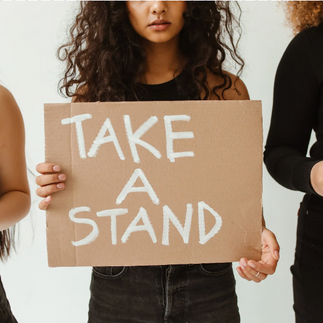Honoring Dr. King's Legacy: 8 Meaningful Ways to Celebrate Martin Luther King Jr. Day
- Shannon N Martin, LPC

- Jan 15, 2023
- 3 min read
Updated: Feb 18, 2023
Martin Luther King Jr. Day is a federal holiday in the United States celebrated on the third Monday of January each year, in honor of the civil rights leader Martin Luther King Jr. It is a day to reflect on the progress that has been made towards racial equality, and to recommit ourselves to continuing the fight for justice.

Dr. Martin Luther King Jr. was a Baptist minister and leader in the Civil Rights Movement, whose work and speeches played a pivotal role in ending legal segregation and racism in the United States.
As we reflect on the progress that has been made since Dr. King's time, it is also important to remember that there is still much work to be done in terms of achieving racial equality and justice. One way to honor Dr. King's legacy is to actively work towards creating a more just and equitable society. Here are some meaningful ways to celebrate Martin Luther King Day and continue the work of civil rights advocacy.
#1 - Volunteer in your community
Martin Luther King Jr. Day is often designated as a "Day of Service." This is a great opportunity to give back to your community by volunteering at a local non-profit organization or school. You can also participate in a community service project or help out at a homeless shelter.
#2 - Learn about Dr. King's life and legacy
Take the time to read some of Dr. King's speeches and writings, such as his famous "I Have a Dream" speech. You can also watch documentaries or read books about the Civil Rights Movement. This will give you a deeper understanding of the issues that Dr. King was fighting for and the impact of his work.

"The time is always right to do what is right." – Dr. Martin Luther King, Jr.
#3 - Be an ally
One of the most important things we can do to honor Dr. King's legacy is to be an ally for marginalized communities. This means listening to and supporting the voices of marginalized groups, speaking out against racism and discrimination, and taking action to create a more just and equitable society.
#4 - Attend a local event or march
Many communities hold events and marches on Martin Luther King Jr. Day to honor Dr. King's legacy. These events can be a great way to connect with others who are committed to civil rights advocacy and to learn more about the issues that Dr. King was fighting for.
#5 -Educate yourself and others
Education is key to understanding and addressing the systemic issues of racism and discrimination. Read books and articles on the history of racism and discrimination in the United States and learn about the ongoing struggles of marginalized communities. Share this knowledge with others and have conversations about these issues with friends and family.
#6 -Support organizations working for racial justice
There are many organizations that are working to create a more just and equitable society. Support these organizations by volunteering, making a donation, or attending their events.
#7 - Speak out against racism and discrimination
Dr. King's legacy is built on speaking out against injustice. We can honor his legacy by speaking out against racism and discrimination in our own lives and in the world around us. This can mean calling out racist comments or actions, challenging discriminatory policies or practices, or simply having difficult conversations with friends and family.
#8 - Get involved in politics
Political action is an important way to create change. Consider getting involved in local or national politics by volunteering for a candidate or campaign, or by joining a political action group.
In Conclusion
Martin Luther King Jr. Day is a time to honor the life and legacy of Dr. Martin Luther King Jr. and to continue the work of civil rights advocacy. By volunteering in our community, learning about Dr. King's life and legacy, being an ally, attending a local event or march, educating ourselves and others, supporting organizations working for racial justice, donating to organizations that support marginalized communities, speaking out against racism and discrimination, using our privilege to support marginalized communities, and getting involved in politics, we can all work towards creating a more just and equitable society. As Dr. King said, "Injustice anywhere is a threat to justice everywhere." (King, Martin Luther Jr. 1963. Letter from Birmingham jail)

.png)
%20(1)_edited.png)













